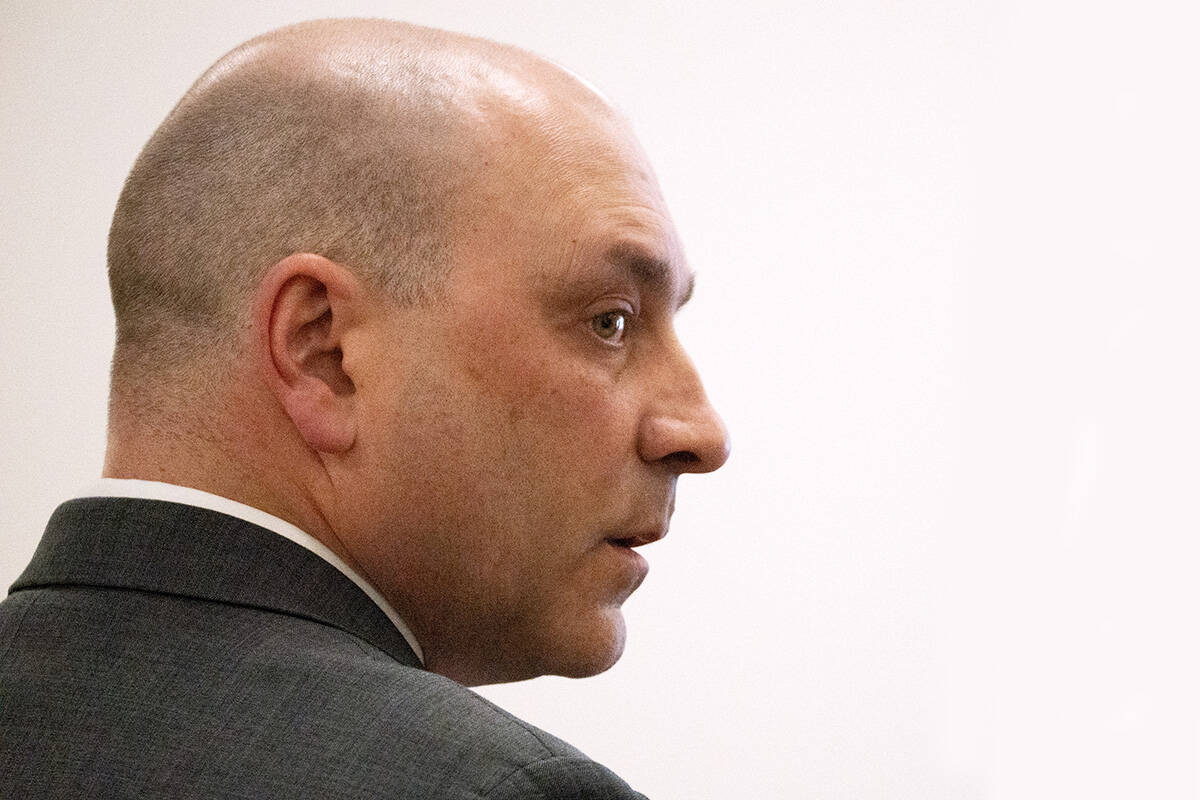What are they hiding? Police refuse to release details on former sergeant’s ‘outlandish’ behavior
A former Washoe County sheriff’s sergeant was arrested and charged with multiple felonies nearly three years ago, but the police department that investigated is still refusing to provide the public records about the incident and subsequent investigation.
Then-Sgt. Dennis Carry had entered a courthouse after hours to alter documents to hide that he was married to two women at the same time, according to court police records. He hid cameras at the Washoe County Sheriff’s Office, forged divorce paperwork and used his undercover law enforcement identity to create email accounts as part of the ruse, the records show.
Carry, who had been placed on leave and then retired during the investigation, pleaded guilty to three felonies, including bigamy, in December, but a local journalist has been thwarted in his attempts to get more information from the police department.
Bob Conrad, publisher, editor and co-founder of This Is Reno, an online news outlet covering the Reno area, is embroiled in a public records legal battle with the Reno Police Department to obtain details about the case, such as oversight of the former sergeant.
“This is a quintessential man-bites-dog story,” Conrad told the Las Vegas Review-Journal. “This is a high-level sheriff’s sergeant accused of multiple felony crimes, and the depth and the degree of those crimes is so outlandish that the public deserves to know.”
Karl Hall, the city’s attorney, declined to comment, citing the pending litigation.
Fighting for records
In 2020, Conrad requested a copy of the investigative report that would show the number of felony charges the former sergeant was facing. The city of Reno denied the request, saying the investigation was pending. Conrad sued in 2021.
A district judge ruled in the city’s favor, but the Nevada Supreme Court overturned the district court, ruling in Conrad’s favor and remanding the case back to the district court.
In December, the parties met for a hearing where the judge told both parties to get together and figure out which records Conrad wants. The judge will ultimately determine what can be redacted or provided.
Throughout the legal battle, parties argued back and forth about whether the records were confidential.
After Carry was arrested in 2021, Conrad obtained a 187-page affidavit from Reno Justice Court detailing the Reno police investigation of Carry’s case.
The police still declined to provide the investigation file — which includes emails, reports, documents and witness statements — saying it was confidential and could affect an upcoming jury trial. Conrad argued that since portions of the file were already made public, at least some of the information in the investigative report was not confidential.
When Carry pleaded guilty to three of the felony charges in December, he signed a plea agreement that vacated his criminal trial. The city of Reno, however, said the records should not be released because Carry has the right to withdraw a plea before the sentencing hearing, which is scheduled for April. Therefore, a jury trial is still a possibility.
“Other concerns remain even in the wake of the Supreme Court’s decision in this case and even in the wake of Carry’s guilty plea,” wrote an attorney for the city of Reno. “A case remains pending until sentencing.”
Records also often contain personal information of witnesses, investigators and victims, and releasing the records could potentially affect their privacy, the city argues. Conrad, however, said any sensitive information could be redacted from the report, adding that a pending case should not prevent the release of records.
Other records denied
Conrad also is fighting to receive unredacted police body-camera footage of a sweep officers conducted at a homeless encampment, a copy of a report on an officer-involved shooting and copies of a Reno City Council member’s social media and text messages.
“Few people have the resources to go the distance in court and battle these issues,” Conrad said. “To me, that is why these governments, local governments and their attorneys, continue to deny these things.”
In his experience, most of those public records request denials end up being illegal when challenged in court.
The Nevada Public Records Act is clear, but agencies and governments don’t seem to take those requirements seriously and will go to great lengths to avoid following the law, he said. Conrad would like to see stricter disincentives for local governments when they deny records requests.
Because the public relations industry has grown while the news industry has shrunk in the last couple of decades, the public gets a lot of one-sided narratives from the government, he said. Public records are the antidote in which the public gets to see how governments actually responded to an incident and how they behaved, which are frequently different from the public statements the government puts forward, he said.
“Without public records, we don’t get to see what government is really doing,” Conrad said.
Supreme Court Decision by Jessica Hill on Scribd
The “What Are They Hiding?” column was created to educate Nevadans about transparency laws, inform readers about Review-Journal coverage being stymied by bureaucracies and shame public officials into being open with the hardworking people who pay all of government’s bills. Were you wrongly denied access to public records? Share your story with us at whataretheyhiding@reviewjournal.com.
Contact Jessica Hill at jehill@reviewjournal.com. Follow @jess_hillyeah on X.



















